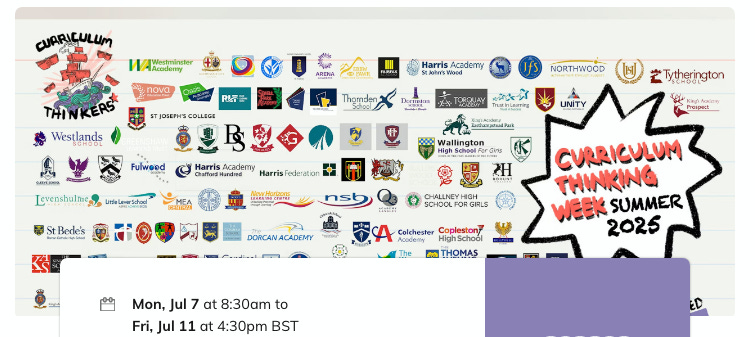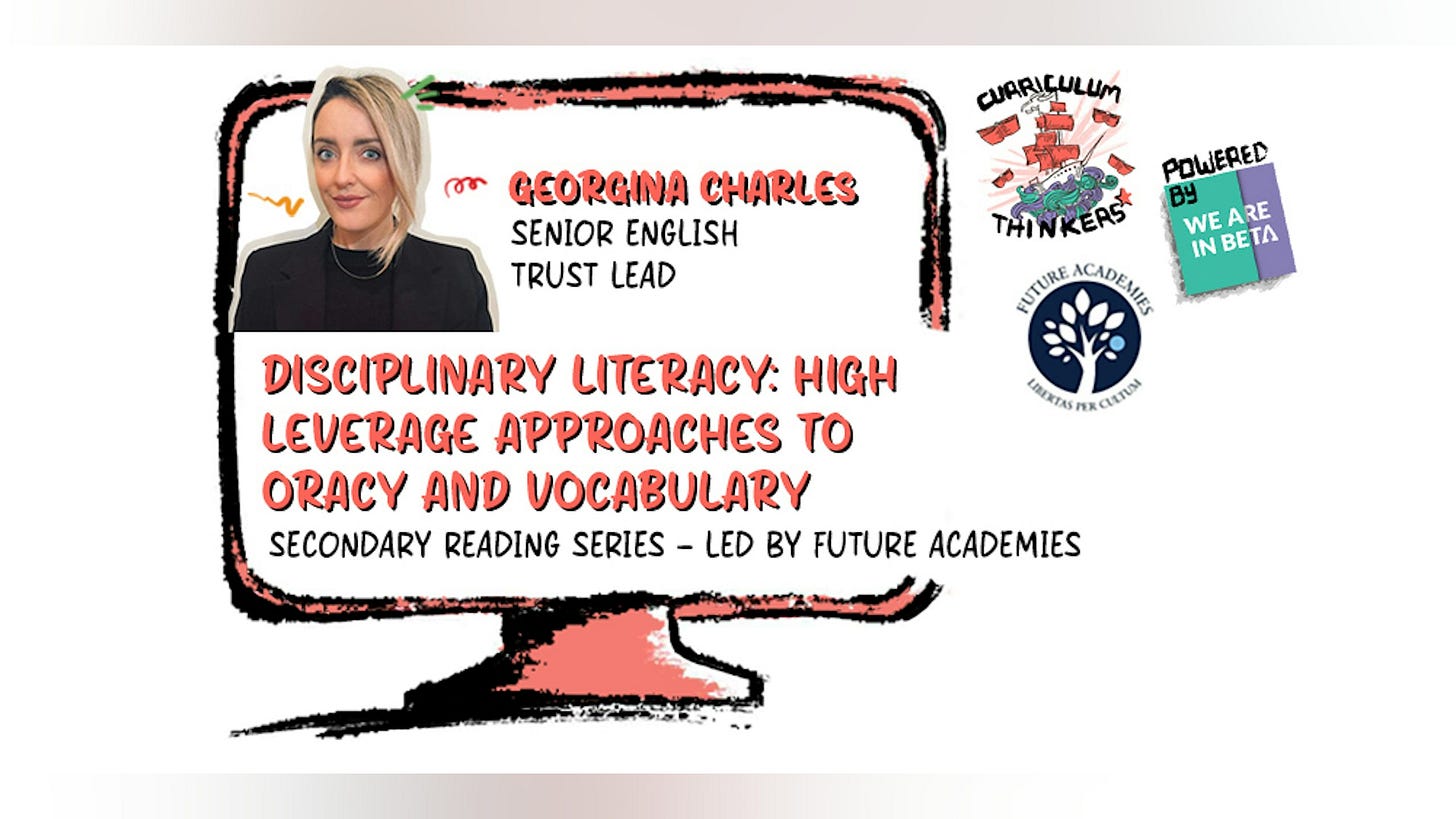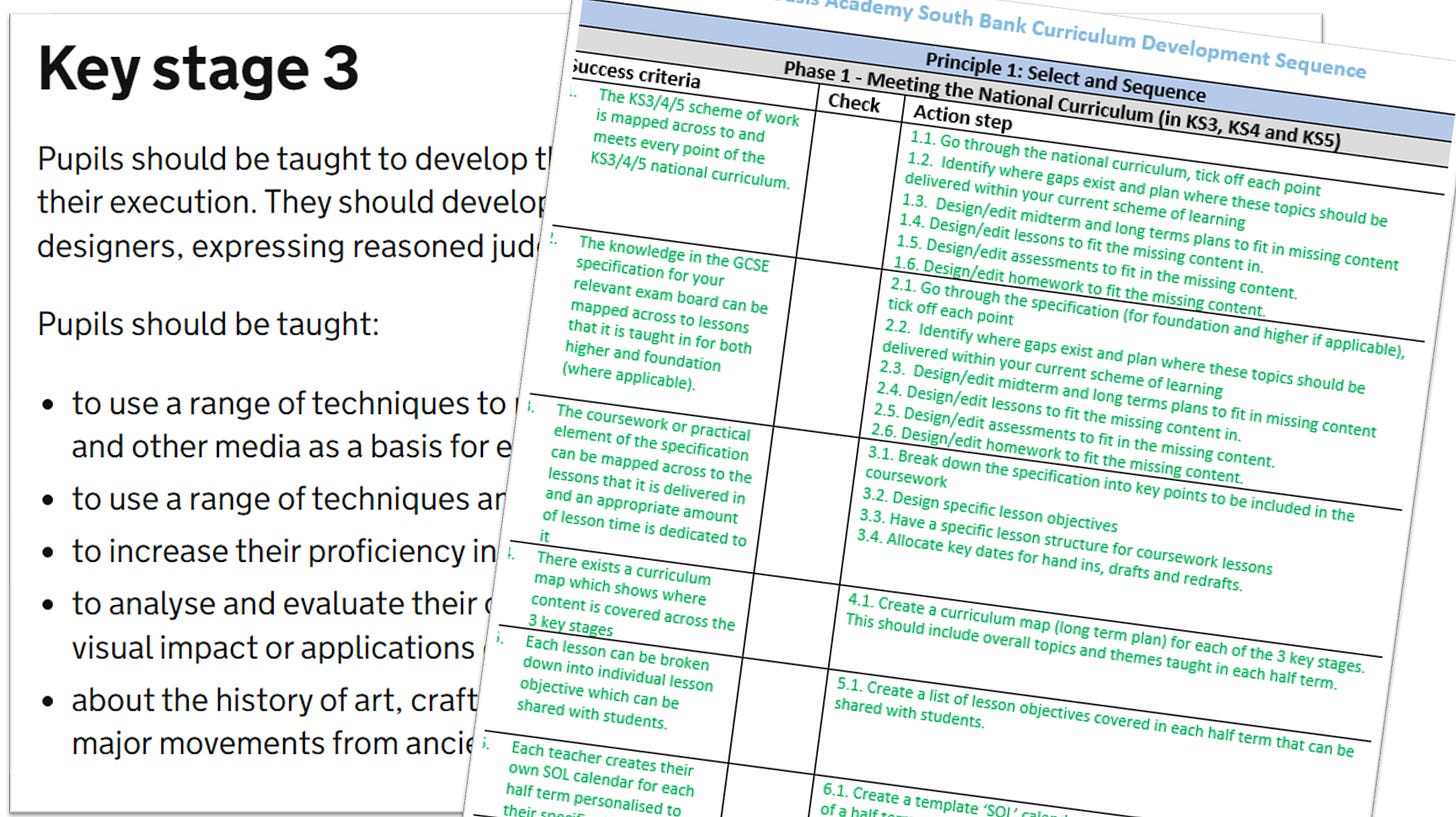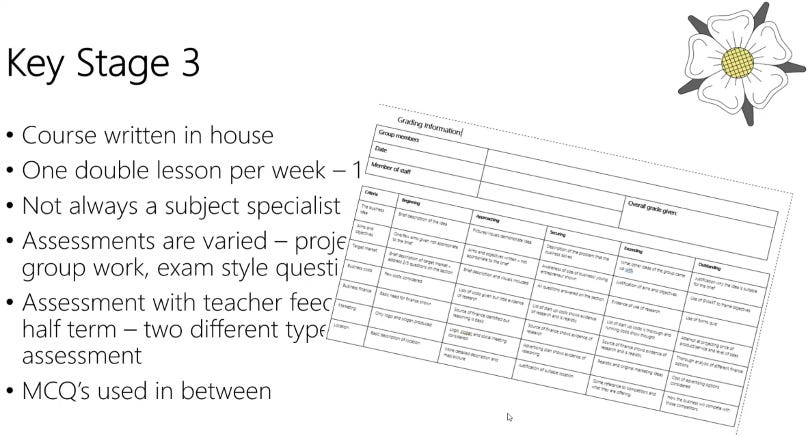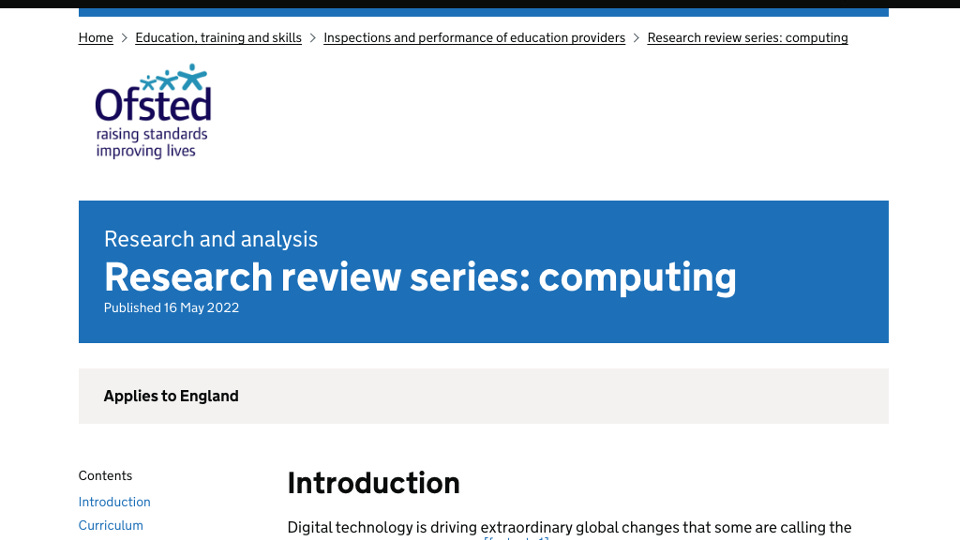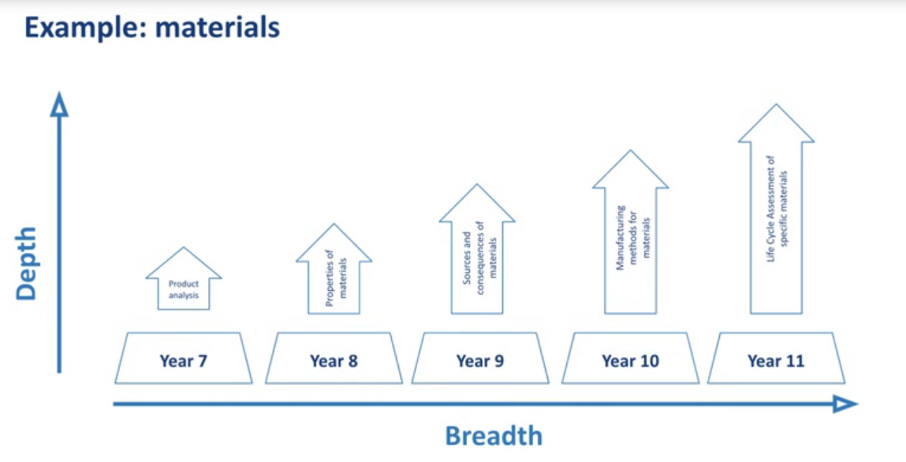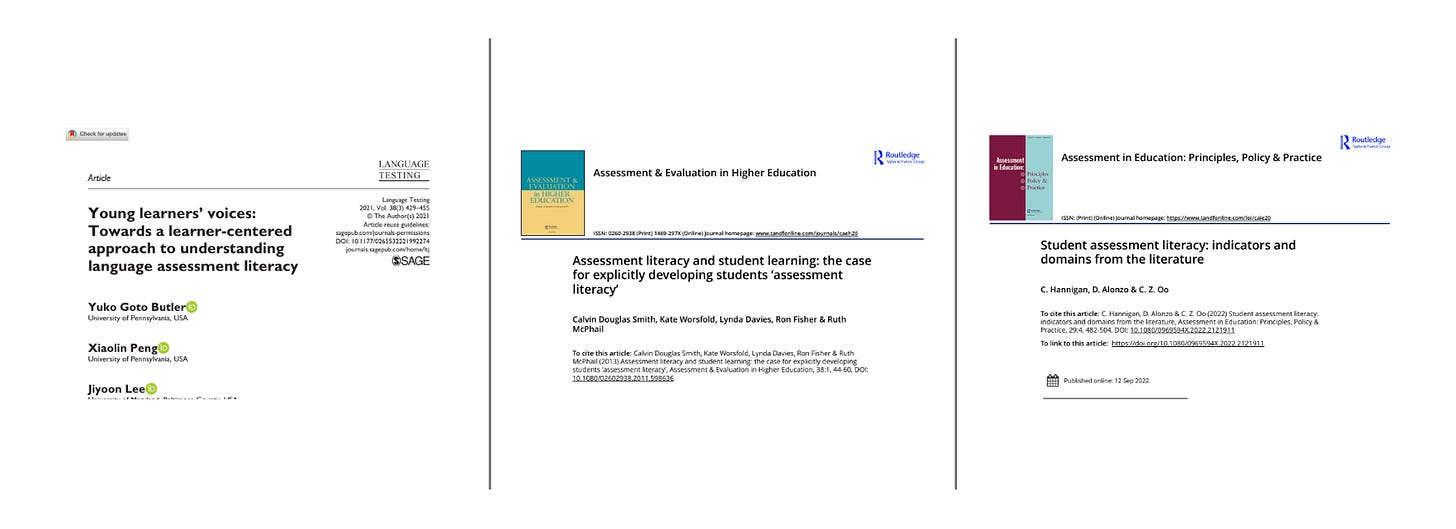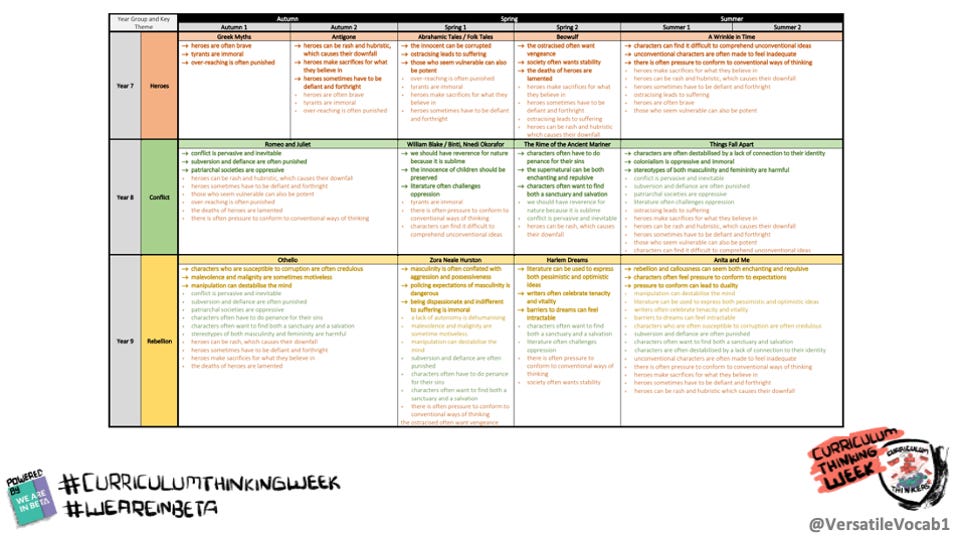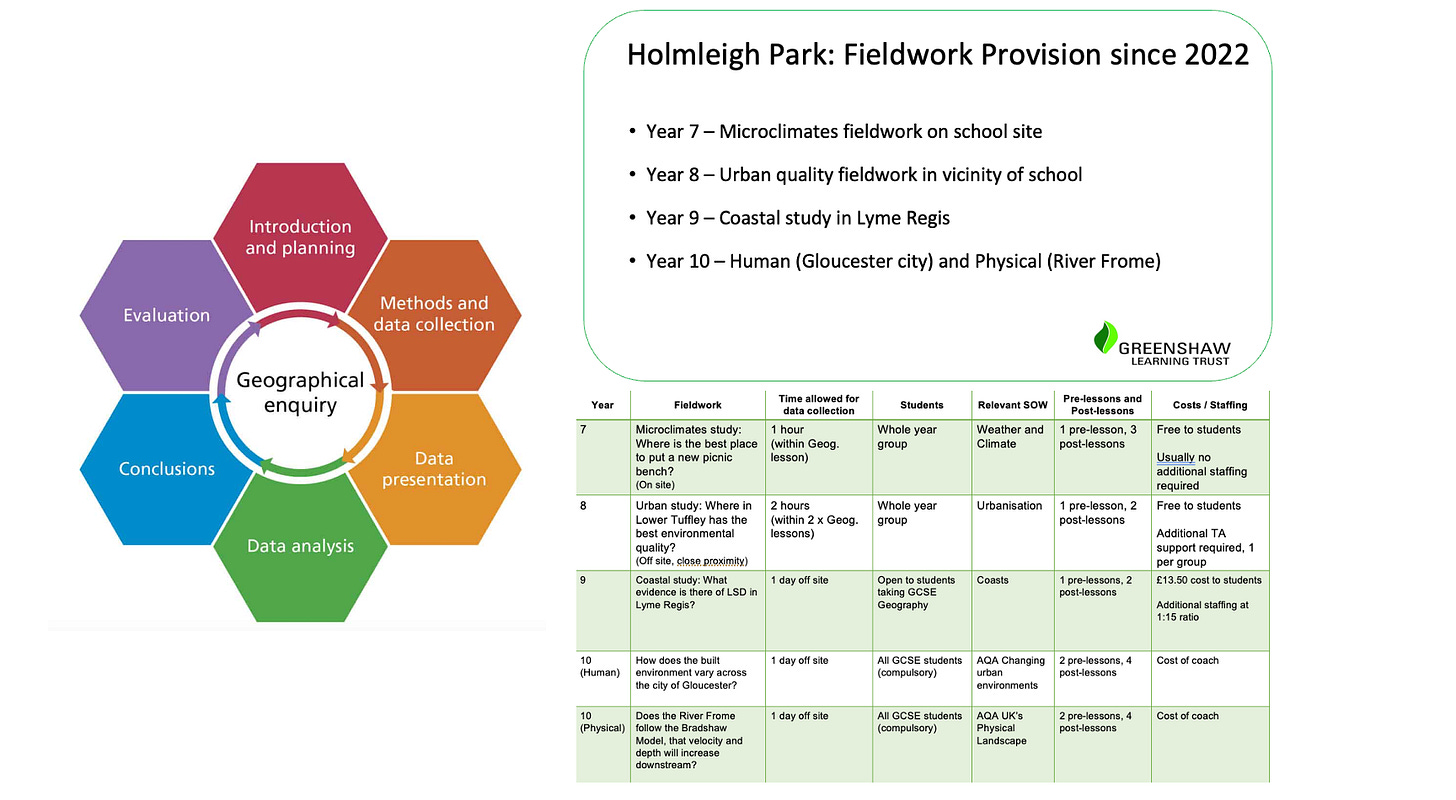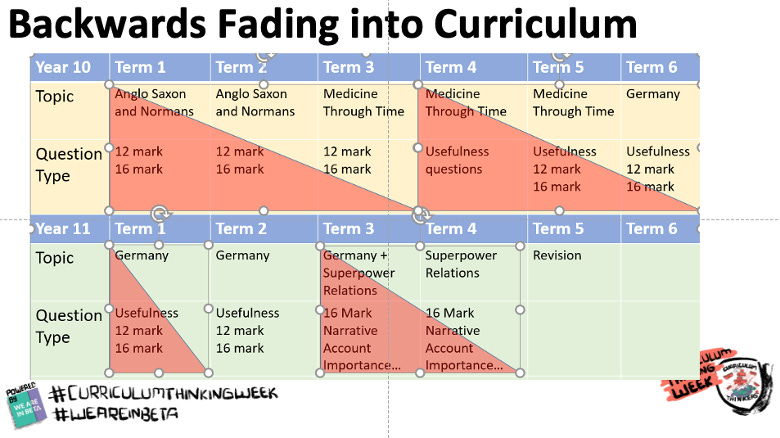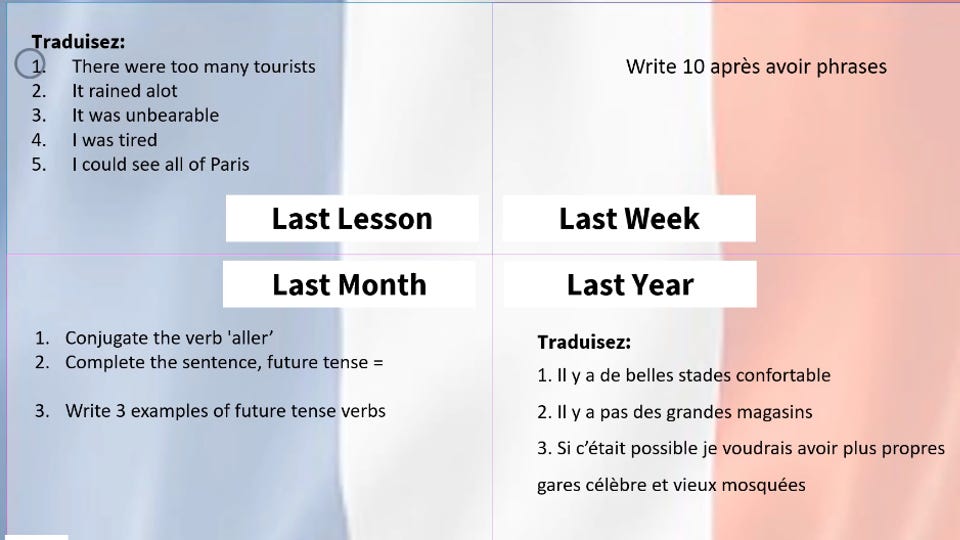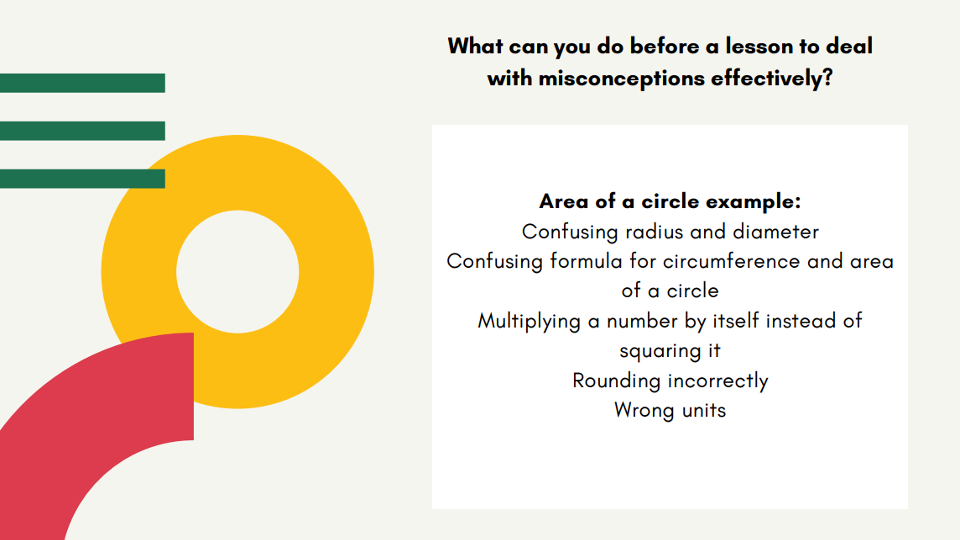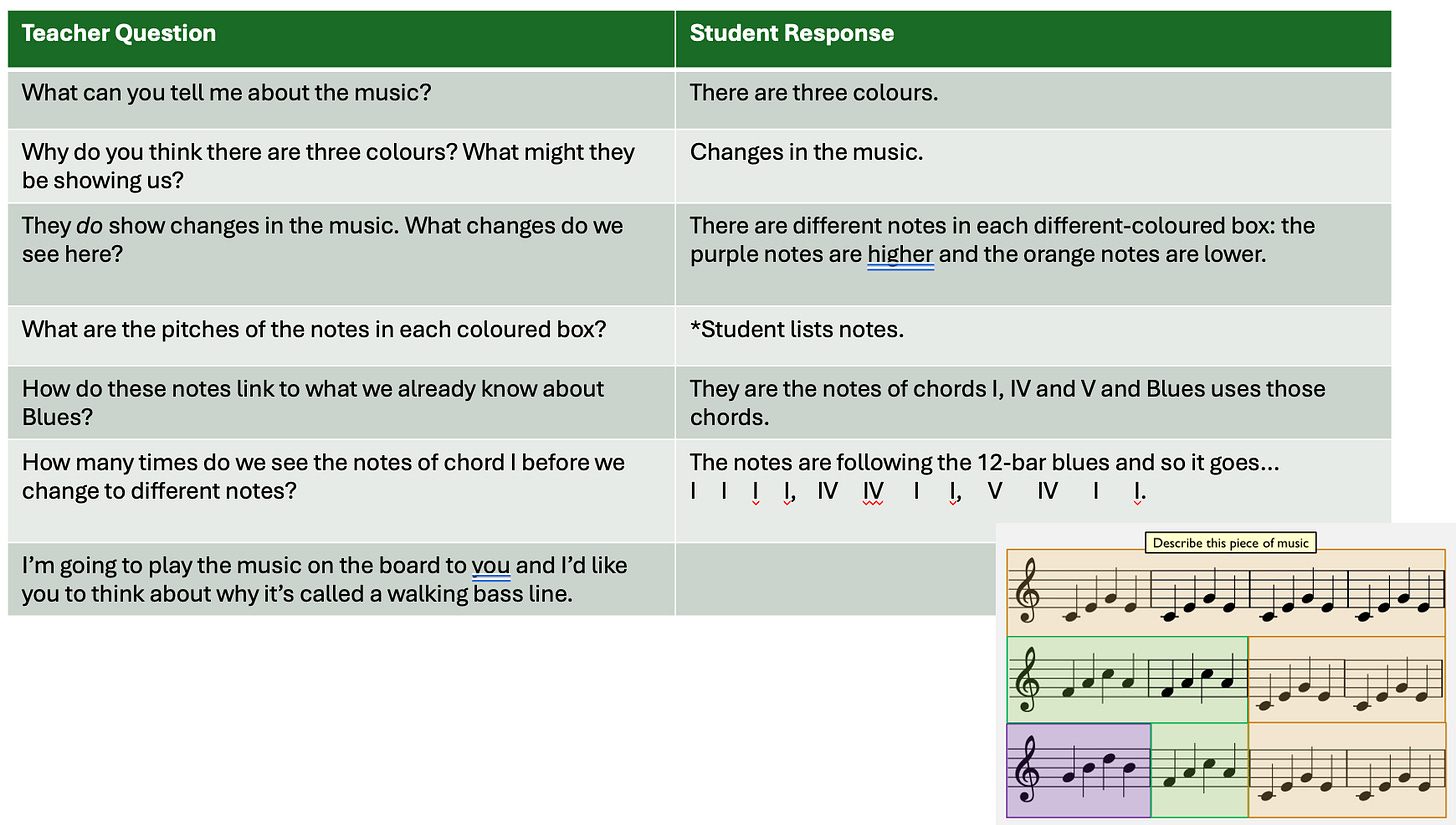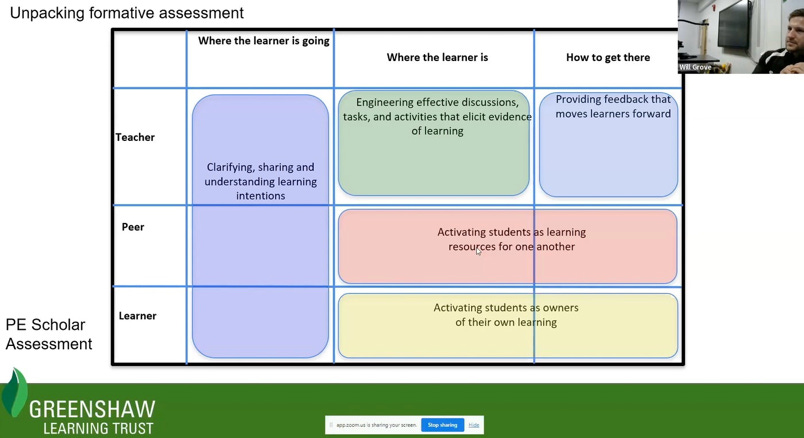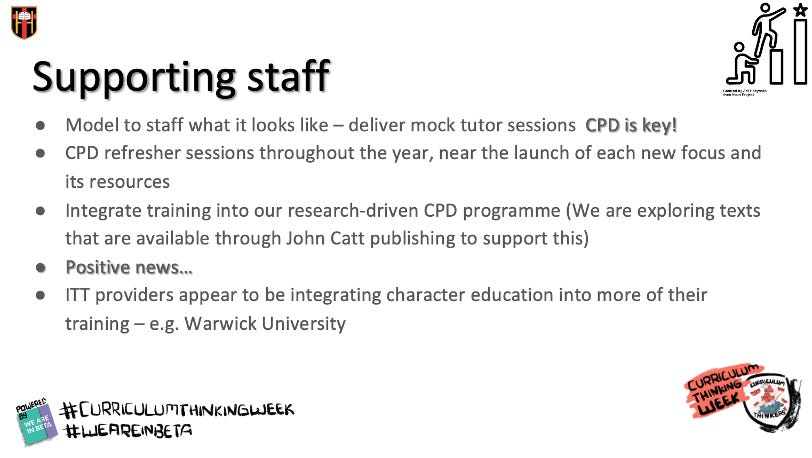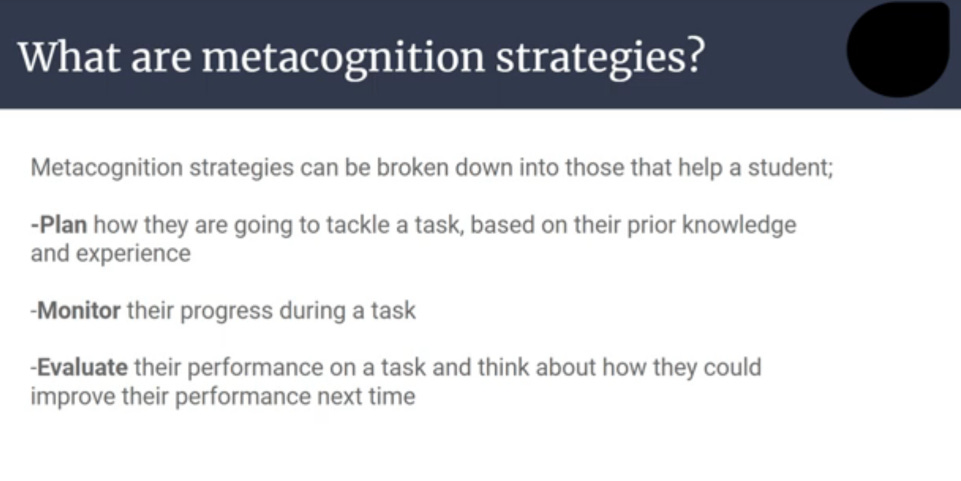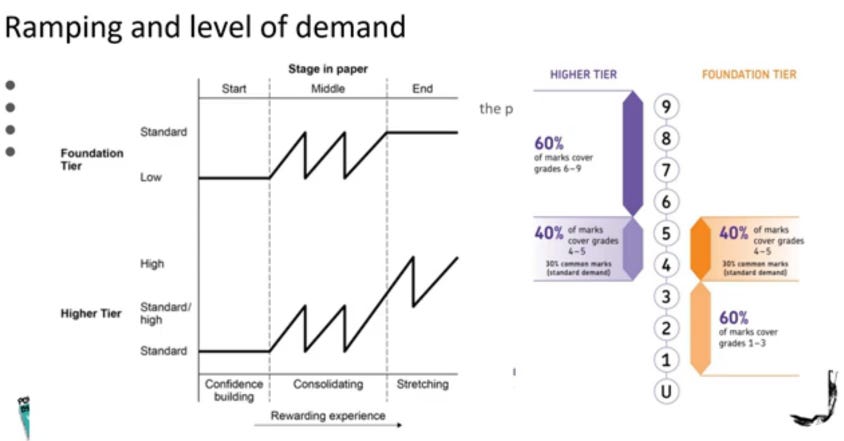How do you stay up to date? How do you keep innovating? How do you make sure you keep improving in your subject?
The truth is, it can be difficult.
With so much content to cover, resources to create and work to mark, it can be easy to forget to lift your head up and ask:
“how can that idea over there help us be even better over here?”
On 7th of July your fellow community members will be sharing how they have achieved subject success in their departments at Curriculum Thinking Week conference 2025.
If you’ve not been before, you might be wondering:
What do speakers actually share? And what will I learn?
Fair questions.
So this week we’ve gathered 15 ideas from last year’s conference to give you an idea of how useful this year’s conference will be.
If want to access all the new sessions - and all the resources speakers will kindly share…
If you miss the cut off, you won’t be able to access recordings on demand or the resources speakers share.
Before we get into the subject specifics, a quick invite…
Disciplinary Literacy: High leverage approaches to oracy and vocabulary (Secondary Reading Series | Session 3)
Young people are lacking the vocabulary to express themselves. This struggle to articulate is not just an academic issue. It’s also a social inclusion issue as it leads to isolation, poor relationship building, emotional turmoil.
Join us - regardless of the subject you teach - for Part 3 of the Secondary Reading Series with Future Academies, where Trust Lead for English, Georgie Charles, explores how they improve vocabulary, it’s instruction and oracy across different curriculum areas.
📆 Monday June 23rd
🕓 4.30pm
Paying members can access the replays and dozens of reading resources from session 1 here and session 2 here.
15 ideas for success in your subject
The following ideas are just the tip of the iceberg, in terms of the richness of resources, research, recordings and relationships inside Curriculum Thinking Week
There is something to learn from every subject below, regardless of the subject you teach.
Recordings and resources below are only accessible to paying members of the Curriculum Thinking Community.
Not a member? Get a trial here. Or
Register for Curriculum Thinking Week 2025 by 4th July (You’ll get free access for the week beginning 7th July)
1. 🎨 Art: Curriculum development steps
Break down the actions you need to take during curriculum development. This provides a road map of what to do next.
Shared by Peter Corkish, Head of Art, The Dorcan Academy, (via h/t to Lisa McGlasson, Oasis Academy Southbank). Access resources here.
2. 💰 Business: Getting Key Stage 3 assessment right
Use a variety of techniques at KS3, including some exam style questions but don’t simply bring GCSE exam question down from KS4.
Shared by Laura Pollitt, Curriculum Leader for Business, Economics and Careers, John Taylor Free School. Access resources here.
3. 💻 Computing: Planning intent
Before planning (or while reviewing) your subject intent, read the Ofsted Research Review Series. They spell out what to do and how to do it.
Shared by Susan Farrimond, Head of Computing, Business and Media, Little Lever School. Access resources here.
4. 🛠️ D&T: Avoiding the curse of content
Pick key themes that run through Years 7-11, which you revisit each year, so you can balance breadth and depth and avoid having too much content to get through.
Shared by Ed Charlwood, Secondary Curriculum Lead (D&T) at United Learning and National Lead Practitioner (D&T) at Oasis. Access resources here.
5. 🎭 Drama: Developing assessment literacy
Explicitly develop students’ assessment literacy by giving students the criteria and asking them to grade teachers work. It will fine tune you ability to work towards objectives and students’ ability to meet them.
Shared by Rosie Devine, Head of Drama, Coombe Wood School. Access resources here.
6. 📖 English: Identifying core concepts and vocab in texts
On the surface of the, different text seem very different. But if you identify core concepts, which run through different pieces of literature (and tie them to key vocabulary) your students will be able to see patterns and revisit concepts over time.
Shared by Josie Sacks, National Curriculum Lead, Oasis Academy Southbank. Access resources here.
7. 🌎 Geography: Ensuring fieldwork success
Prioritise, plan and resource it properly all the way from Year 7 to 11. Use an enquiry wheel to give students a full 360 experience of fieldwork.
Shared by Emma Hammond, Subject Leader for Geography, Holmleigh Park High School. Access resources here.
Sent this by a friend?
8. 🏰 History: Making homework impactful through backwards fading
Combine backwards fading and systematic planning to improve quality and consistency of homework.
Shared by Chris Ryder, History 2i/c, The City of London Academy Southwark. Access resources here.
9. 🇪🇸 Languages: Embedding retrieval
To improve recall, go further back than last lesson. Regularly challenge students to remember what they learned last week, last month and last year.
Shared by Ben Harrison, Head of MFL, West Midlands. Access resources here.
10.📊 Maths: Planning for misconceptions
Spend time as a team discussing what misconceptions students will have before teaching a topic. Plan together how you will tackle them.
Shared by Sabia Shafiq, Head of Maths, Challney High School for Girls. Access resources here.
11. 🎶 Music: Making teaching adaptive
Use colour in musical notation to level the playing field and make it more inclusive to students of all abilities.
Shared by Hannah Morgan, Head of Music, Beaumont School. Access resources here.
12. 🥇 PE: Implementing formative assessment
Formative assessment is useful for a number of stakeholders in classrooms. Being clear on which groups, can help you establish where you are now, where you are going and how to get there even more effectively.
Shared by Will Grove, Head of PE, Broadwater School. Access resources here.
13. ⚖️ PSHE: Developing staff
When PSHE is taught through tutor time, staff will be teaching out of specialism. Take the time to set staff up for success through training.
Shared by Anya Kinsella, Deputy Headteacher, Harris Church of England Academy. Access resources here.
14. 🧠 Sociology: Building metacognition
When helping students think about their thinking, break it down into three satges: planning, monitoring and evaluating.
Shared by Amy Lesik, Head of Sociology, Beaumont School. Access resources here.
15. 🔬Science: Improving outcomes
When choosing which tiers students sit, consider the level of demand at the start, middle and end of the paper.
Shared by Pavandeep Aujla, Teaching and Learning Lead, Creative Education Trust. Access resources here.
Curriculum Thinking Week 2025 will be showcasing 80+ sessions across 20 subjects.
If you register before 4th July, you’ll get access to all sessions and resources for the full week.
After that only paying members will be able to access all the good stuff on demand.
Resources and recordings are only available to paying members of the Curriculum Thinkers Community who can:
learn from hundreds of recordings covering every aspect of curriculum development across 20 subjects
download 2000+ resources - both whole school and subject specific
access 700+ academic related policies, plus analysis of them, from successful schools - T&L, assessment, homework and more.
promote their jobs in our newsletters that go out 23k school leaders and teachers.
Not a member? Get a trial here
Already a member but can't access, DM Fiona Flint and ask her for your membership activation link.
Sent with ❤️ from the The Pastoral Champions Team at We Are In Beta




